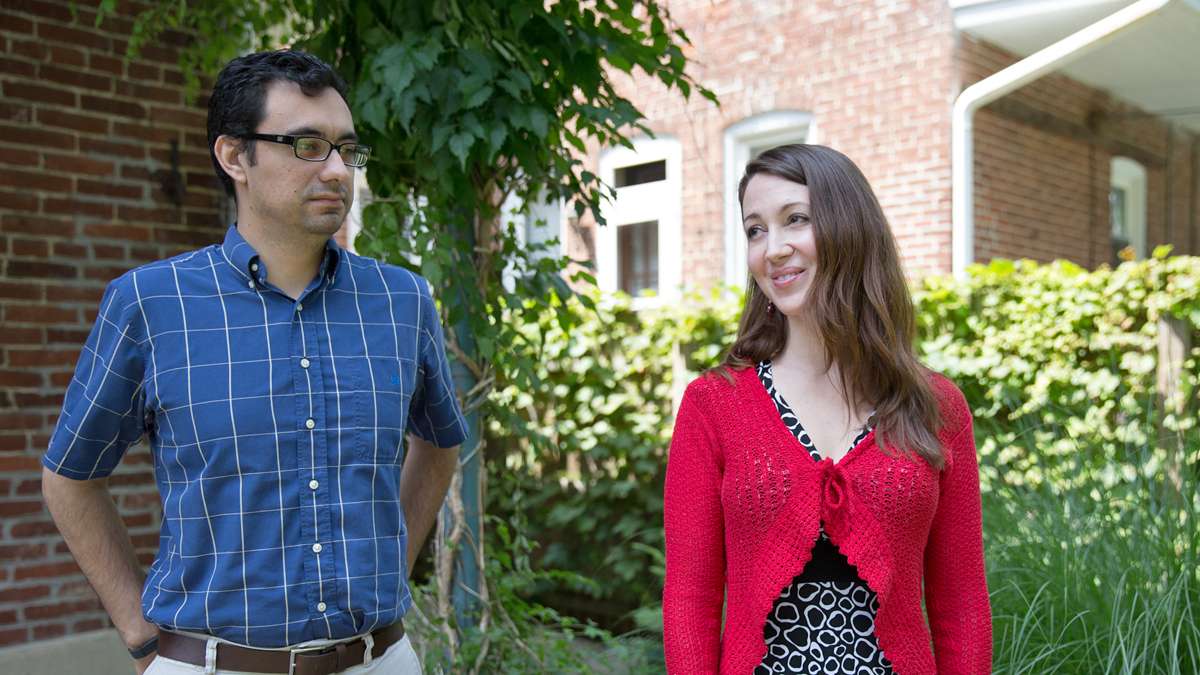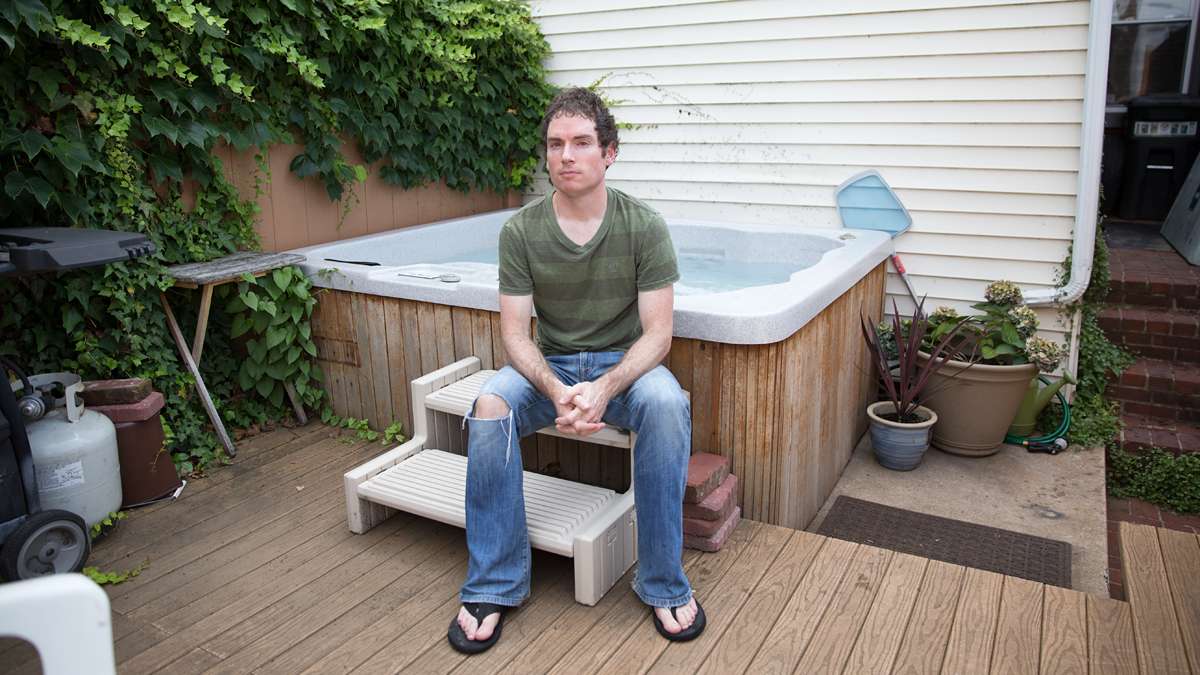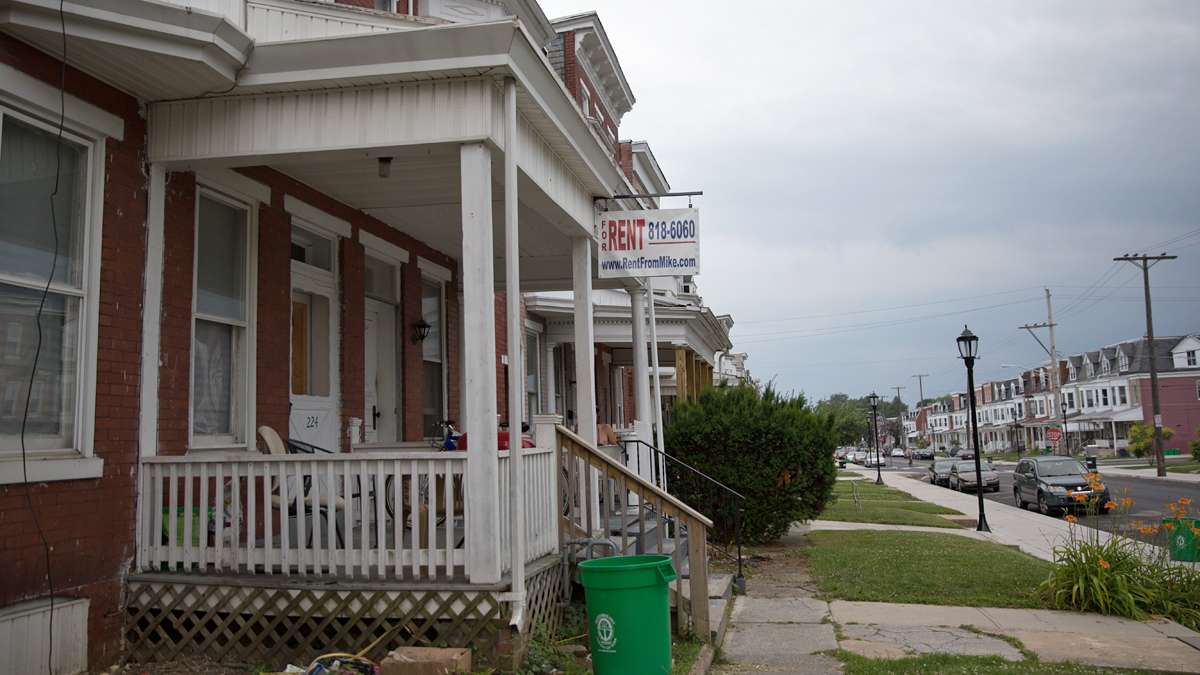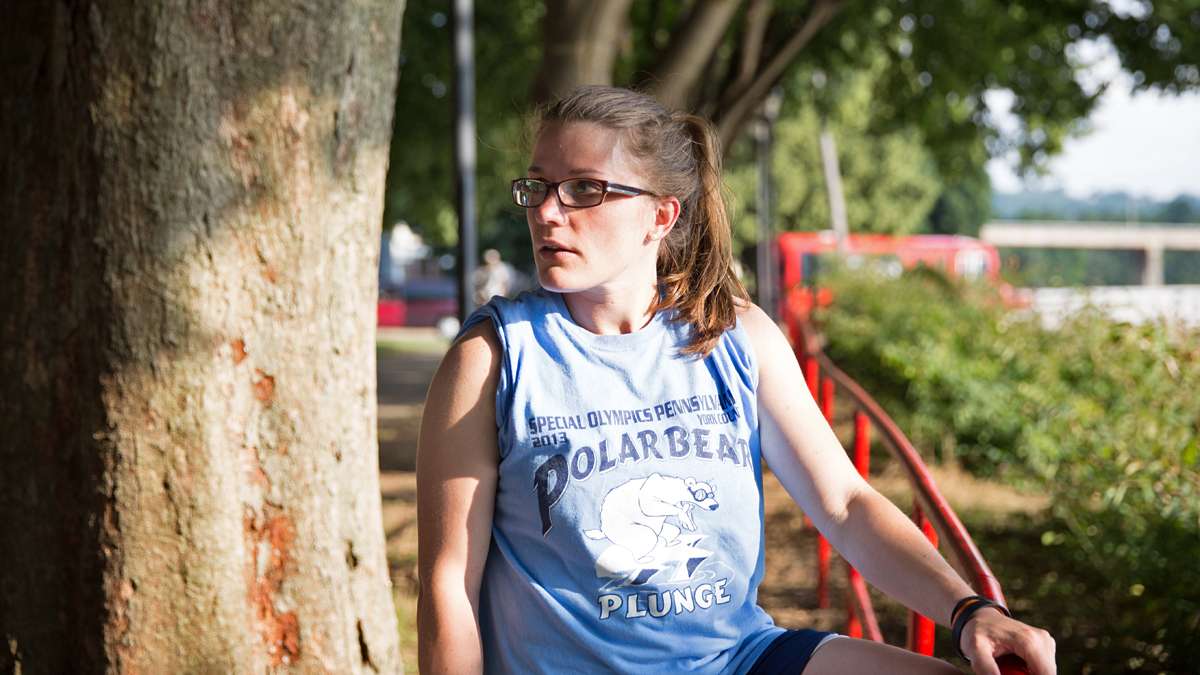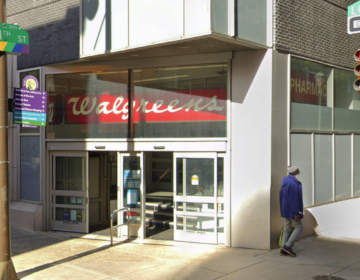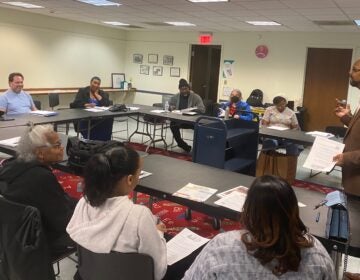Young Philly football star’s transfer stirs bad blood between two schools
A star football player’s transfer from one Philadelphia high school to another has fueled bad feelings, complicated his bid for a major college scholarship and led to a hearing near Harrisburg on July 23.
The clock reads 5:45 a.m. on a school day in early June, and the sun has just peeked over North Philadelphia’s horizon line.
Annette Thomas rushes down the creaky steps of her rowhouse near 10th and Glenwood. She’s out the front door within seconds. Her shift as a Genesis HealthCare home nurse will soon begin.
Once that door closes, her son Dawayne Young bears full responsibility for ensuring that his preteen brother and sister, Dequan and Dainyah, board a yellow school bus for their five-mile ride to West Oak Lane Charter School.
It’s a scene of brotherly responsibility and post-dawn stress that plays out in many Philadelphia homes each school day. But in this case, it’s at the heart of a school transfer case that has fueled bad blood between two of the city’s best-known high-school coaches, complicated Dawayne’s quests for a college scholarship and led to a hearing near Harrisburg later this month.
You see, Dawayne is very good at football, and somehow he’s gotten caught in a crossfire between two schools and coaches, with his family obligations pitted against his football aspirations.
A lot rides on a bus’ promptness
Action News airs on an ancient TV in a living room decorated only with a framed 8-by-10 photo of President Obama, a varsity sports jacket on a hook, shoulder pads and cleats on a table, a half-eaten box of cinnamon buns next to a sunken couch and chipped blue paint on the walls.
Wearing their school uniforms, Dequan and Dainyah prepare their midday meal in the dining room. Lunchmeat and Hellmann’s mayo on store-brand bread joins Nestle Pure Brand water and Baked Doritos in yellow-plastic bags.
Bus No. 3333 is supposed to arrive at 6:15 a.m., but on some days, it doesn’t. If it’s not there by 6:35 a.m., it won’t be there at all.
As Annette Thomas explains, “If Dawayne left already and the bus doesn’t come, they’d be on the porch all day. He has to make sure they get the bus.”
So today, as the scheduled pickup time approaches, the trio makes its way out to the front porch amid playful banter. Dawayne fiddles with his smartphone and reminds Dequan to tie his shoes.
Two school buses pass by. Not theirs. Dainyah fishes a sandwich out of her bag and starts eating. Don’t worry, she says, I made two.
A neighbor, in a hairnet and robe, walks across the street to feed stray cats in a triangle parklet that boasts of backless benches and a tire-less pickup truck on cinderblocks near a mural dedicated to the city’s victims of violence.
A change in destination
Dawayne is 17. He’s not only responsible for getting his siblings to school, but for getting himself to class on time, too. Make that trying to get himself to class on time.
Before March, that meant a 12-mile, 90-minute, SEPTA-led trek to George Washington High School up on Bustleton Avenue.
Dawayne was often late. That translated into problems with grades to the tune of a 1.5 GPA at Washington, where Dawayne starred as a defensive end on the football team. He often wouldn’t get home until 7 or 8 p.m.
That type of long day takes a physical toll.
“Since the beginning of the school year,” says Annette, “I started noticing that he was dragging his feet to get out of the house in the morning.”
At 6:32 a.m., Dequan and Dainyah’s bus pulls in front of the house. Once they’re off, Dawayne walks up to Germantown Avenue and, seven minutes later, boards the SEPTA Route 23 bus.
If he was going to Washington, he’d probably be late again. But on this day that’s not his destination.
Three months earlier, he transferred to Martin Luther King High School in West Oak Lane. Annette says it was her idea. She wanted her three kids within Stenton Avenue eyeshot of each other.
“I don’t want to put pressure on him, but it’s there. He has a lot of responsibility for a 17-year-old,” she explains. “Transferring to King, all three would be right across the street from each other. There’s a sense of security for me, knowing they’re all together.”
That sense of security, however, came with a new set of problems.
Having settled in at King, Dawayne cut down on latenesses, bumped up his GPA to a 2.0 and returned home around 5 p.m. each day.
In the eyes of the Pennsylvania Interscholastic Athletic Association (PIAA), though, his transfer left him ineligible to play football for King his senior year. That means the recruiters from big-time college programs like Missouri, Pitt, West Virginia and Rutgers, who’ve sent him the letters that fill a shoebox on the living-room windowsill, won’t get to see him play.
Temple says it’ll be interested in Dawayne for football no matter what; maybe some other small programs will, too. But his chances for a scholarship from a big-time football school probably hang in the balance. And that leaves his mother fuming.
The way Annette Thomas tells it, once Dawayne told folks at Washington that he was transferring, they launched a spiteful, full-court press to prevent him from playing for MLK.
Washington’s Hall of Fame coach, Ron Cohen, says no such thing happened, and that he wishes Dawayne nothing but success.
But, Thomas and the coaches at MLK are none too happy.
“I’m just trying to make life better for me and my family. I didn’t realize football would become such an issue,” she says. “At Washington, he failed [in school] while playing football. I want him to pass and graduate. But now, they’re trying to hurt my son with football.”
That Dawayne Young will continue attending his new school is a certainty.
The only way he’ll play football in the fall, though, is if the PIAA sides with him at a July 23 hearing in Mechanicsburg where he’s appealing decision by PIAA’s District 12 to block his athletic transfer.
Moving around the city
As an eighth grader, Dawayne Young attended John L. Kinsey School in West Oak Lane. It made sense, since the family lived nearby then.
Upon graduation, he was slated to attend King, his neighborhood school. Annette did not like that prospect.
“It had a bad reputation,” she recounts. “I said, ‘Oh no. No way you’re going to King.'”
The family moved to Northeast Philly. For the next three years, Washington High was Dawayne’s logical school.
However, not too long ago, the family moved to their current home, and the trip became untenable.
After the transfer deadline passed this January, Annette made a 180 on King.
Stories about the school’s recent improvements were in her mind when she went to meet with Principal William Wade.
“He said he’d work with me” despite the transfer-deadline lapse, she says. “A couple days later, I went to Washington to fill out the [transfer] forms. I wasn’t directed to the main office. They sent me to the [athletic director].”
Explaining what she termed “an emergency situation for me and my family,” she says she was asked, “Is he transferring for football?”
“What’s football got to do with anything” is the question she asked aloud.
“We think he’s transferring for football” is the response she says she received.
Before long, Dawayne started getting text messages from friends and former teammates about “the rumor going around that you’re transferring to King for football next year.”
One of those texts assured Dawayne that if he apologized, bygones would be bygones and he could still play for the Washington High Eagles.
According to Annette, Wade had written a letter accepting Dawayne’s transfer as a student and an athlete.
But the message she claims she got from officials at Washington and the school district was not so welcoming.
“We can transfer him, but if I find out he’s transferring for football, I’ll make him ineligible,” Annette says she was told at School District headquarters by Darnell Deans, special projects assistant in the Office of Student Enrollment and Placement. (Deans, who doesn’t have the authority to decide matters of eligibility, did not respond to an email seeking comment this week.)
“They offered any other school but King, for him to go and still play football. Kensington. Gratz. Any other school but King,” Annette continues. “This turned into an issue all about football. It was all about football to everybody else, but not to me. Nobody wanted to accept the fact that it was about my three kids.”
Robert Coleman is the chairman of District 12, which covers Philadelphia public-league athletics. The district has fielded a slew of King-transfer requests in the wake of the attention from the recent “We Could Be King” documentary on the team’s 2013 season, which was shown on ESPN.
He told NewsWorks that the transfer issue was up to the state now.
Hearings past and future
Annette Thomas attended the District 12 hearing on her son’s eligibility in April.
A slew of city athletic directors was there, but Dawayne wasn’t.
“It was a school day,” he explains.
Washington Principal Gene Jones — who did not return messages seeking comment for this story — was there, but Wade wasn’t.
“I was at meeting with potential funders for the school,” he tells NewsWorks.
When Annette made her case, she cited the 25-minute commute as being substantially better for her son’s well-being and academic future.
She says the PIAA retorted that he’d been late four times since transferring. She chalked that up to his siblings’ bus not arriving and Dawayne having to escort them to their school before he checked in at King.
“[Washington Coach Ron] Cohen wasn’t there, but people were praising him. And, I like him, too. So does Dawayne. He’s won championships there,” she says. “It doesn’t makes sense to transfer away from that because of football. But I want him to play football, pass and graduate. He wasn’t going to do that at Washington. He was set up for failure there.”
The PIAA verdict: “Dawayne is ineligible to participate in football for one year from the [March 28] date of transfer.”
In a May 7 letter to Wade (PDF), Coleman explained the committee’s rationale.
“I am aware of other facts or circumstances which would lead me to believe that this Transfer was motivated in some material way by an athletic purpose,” he wrote. “I am aware of other facts or circumstances which would lead me to believe that individuals affiliated with the school to which the student transferred engaged in recruiting the student for the purpose of participating in athletics.”
The next step: The upcoming appeal.
“I’m trying to make my life better for me and my family,” she says. “I didn’t realize football would become such an issue, but they’re trying to hurt my son with football now.”
And what was she thinking as she left the hearing? “He’s going to be an All-American. You all’re just bitter.”
What MLK says
Ed Dunn, the head football coach of the MLK High Cougars, was at the hearing. From his perspective, the PIAA “sandbagged” it.
Sure, he’d like Dawayne to play on his team. Who wouldn’t? The kid made all-city second team and would be a decent replacement for Dontae Angus, a highly touted lineman who battled academic struggles while drawing attention from big-time college recruiters last season.
Dawayne says the “if you don’t make the grades, Coach Dunn won’t let you play” regimen at King has made an impact, and Promise Academy’s longer classes helped him work through hurdles with his four daily teachers.
He was at a 2.0 GPA by school-year’s end, and progressing toward the 2.5 threshold for college eligibility.
Dunn says he’ll look out for Dawayne even if he never sets foot on the field. His anger at the elibility ruling remains palpable.
“Every kid should have the opportunity to choose the academic situation that makes sense for them and their family,” Dunn says. “It’s irresponsible to prevent the family from stepping in and doing what’s best for them and their children.
“The ironic part is that if Dawayne wasn’t a football player, then nobody could care that he’s changing schools.”
To Dunn, the transfer isn’t about athletics, “even though other people are trying to make it about that.” It’s about the academic support he wasn’t getting at Washington.
“We’ve seen him become a better student. He’s getting the attention he needs, and taking summer online classes,” Dunn explains. “This is about a kid, an all-star football player, who wouldn’t have been able to go to college without help.”
“Unfortunately, some people who think that him leaving hurt them on the football field want to take it out on a kid who just wants to make something of himself.”
It goes deeper than one student’s transfer, though.
“The insinuation was made by Washington that no kid would want to go from their school to MLK for academic reasons, that it wouldn’t make logical sense,” he says. “That’s nothing but derogatory.”
Dunn notes that 233 of 288 MLK’s seniors graduated this spring: “The reality is that we’re a better academic fit for him. It doesn’t make sense as an athletic transfer actually.”
While saying he has great respect for Coach Cohen, Dunn also called his peer out as playing a role in Dawayne’s ineligibility.
“Ron Cohen is the winningest coach in Public League history,” Dunn says. “But, this is all about punishing kids and being vindictive. [Dawayne] served a big part of their plans for the upcoming season and [Cohen] is angry that he didn’t want to be there anymore, so words are being twisted and people are acting like we recruited and swiped him.”
What Washington says
Cohen, who counts Sharrif Floyd of the Minnesota Vikings among the handful of future NFL players he coached at Washington, concedes that he hated to lose Dawayne. He hates “to lose any player.”
While he knows “what [King coaches] are saying behind the scenes,” Cohen notes that PIAA District 12 voted unanimously to disallow the athletic transfer.
“[Dawayne] had to make a decision and he made it,” says Cohen. “In fairness to him, he had his opportunity at the hearing. Now, it’s up to the state to decide whether to go with District 12’s decision, and I know the state is upset with a lot that’s going on in Philadelphia, with the transfers.”
Cohen maintains that spite had nothing to do with it.
“We would never talk down on the kids. We want to help the kids. That’s what we’re all about,” he says. “I wish the young man the best of luck and that he … goes on and plays in college.”
The appeal
Despite the coaching back-and-forth, MLK Principal William Wade hopes this is a “misunderstanding that will be cleared up” on July 23.
However, he acknowledges that the “national attention” from the documentary didn’t help soothe any friction from outsiders concerned about players wanting to transfer there.
Wade says King is well suited to help with Dawayne’s academic needs because “we’re already in intensive-care mode, dealing with students who are struggling.” He, too, says athletics are secondary.
“He didn’t come to us for football. He fits in as an academic student who happens to also be a football player,” says Wade, who will testify at the upcoming hearing. “I don’t have people out recruiting or steering for football. For our culinary-arts and other programs, all the time, but not football.”
Wade will just “speak the facts, show the numbers of how his grades have improved and talk about how effective my teachers are.”
Back in North Philly
It’s the first Friday of summer break, and Dawayne Young will soon head three miles south to visit with Temple University football coaches.
As he plays NBA 2013K on the living-room TV — his Sixers are beating the Knicks — Dawayne seems way less stressed than a few weeks back.
Temple’s offer has somewhat lifted the “you’re screwed if you can’t play this year” cloud.
Temple is his second offer — a former assistant coach at Washington High, ironically, helped build that bridge. Delaware State also ignored the eligibility issue.
To hear him tell it, Stony Brook, New Hampshire and Buffalo are still in the mix, though no formal offers have been made.
That’s how good of a player he is.
“It’s my No. 1 school,” he says of Temple, whose head coach made the offer after Dawayne won the top overall performer award at the Next Level Nation Football Camp held at Temple last month. “So far.”
Opening up, he echoes what his mother and possible new coach have said.
“It’s about my brother and sister, and my grades not being good at Washington, and the time it takes to get there,” Dawayne says. “This has nothing to do with football. That’s what people don’t seem to get.”
Noting that Washington landed highly touted lineman Shareef Miller as a May transfer from Frankford High, “I don’t know why they’re making such a big deal about me leaving now. It makes no sense.”
He says recruiters from both Pitt and Missouri have sent letters to the Washington address, but that he never received them.
“People aren’t forwarding it,” he says. “They’re not telling me about it.”
He hasn’t yet figured out what he’ll say at the appeal hearing, which comes three days before he heads to another football camp at West Virginia University, where Angus, the former MLK lineman, will soon play.
He’s asked what he’ll do if the state PIAA upholds the local eligibility decision.
“I never thought about that,” he says. “I’ll probably, I really don’t know, just work on my grades and think about playing next year.”
And if the state overturns the local decision? “I think we’re going to win the championship.”
That won’t be an easy task.
King moved up from AAA to AAAA this year, meaning competition comes from bigger schools than the team faced during last season’s miracle run to the school’s first-ever Public League championship.
And then there’s this schedule note:
The Cougars’ last regular-season game falls on Friday, Oct. 24.
Their opposition: Ron Cohen and the George Washington High School Eagles.
WHYY is your source for fact-based, in-depth journalism and information. As a nonprofit organization, we rely on financial support from readers like you. Please give today.












